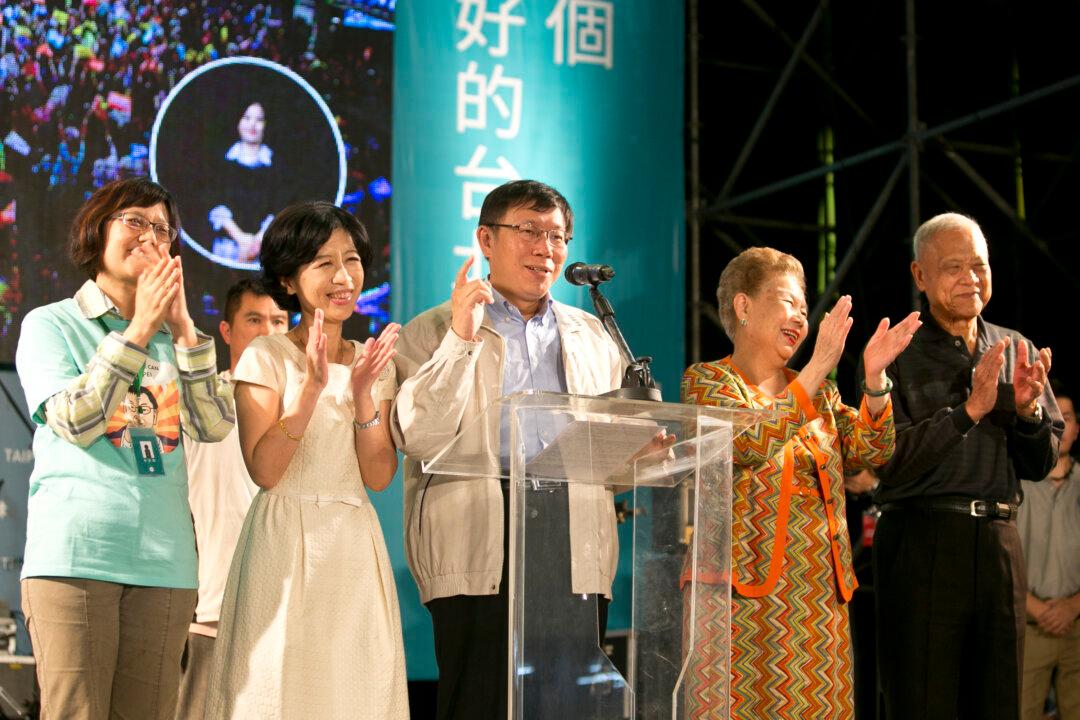
Supporters of Ko Wen-je celebrate after Ko won the Taipei mayoral elections on Nov. 29, 2014 in Taipei, Taiwan. Millions of voters went to the polls for the island's largest ever local elections, as Independent Taipei mayor-elect Ko Wen-je won. Ashley Pon/Getty Images




